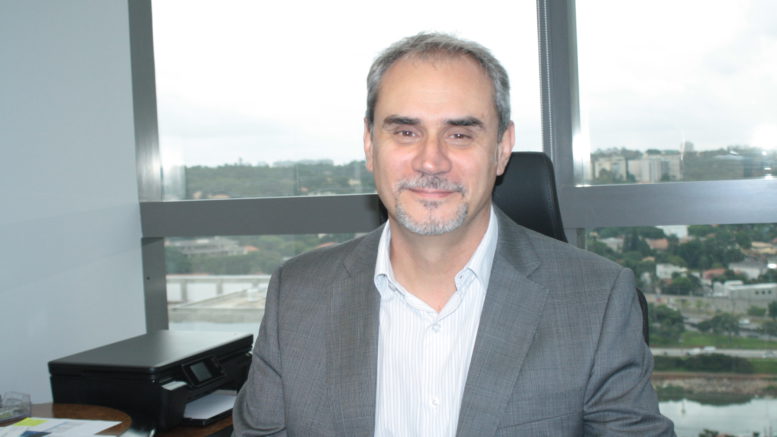Exclusive interview with Fabio Torreta, president of UPL Brazil
In 2020 there was a great emphasis on the heated international demand for grains, which mainly due to the high prices of the dollar against the Brazilian currency, made this harvest to be exported. But for the same reason, the price of importing pesticides was high and with long-term payment, generating a financial instability between the agreements.
AgriBrasilis interviewed Fabio Torreta, president of UPL Brazil since 2019 and also president of Arysta LifeScience until its acquisition by UPL. Fabio Torreta is an agronomist graduated at the College of Agriculture “Luiz de Queiroz” (ESALQ-USP), and has experienced agribusiness for over 30 years.
AgriBrasilis – Since the incorporation of Arysta in 2018, what have been the achievements of UPL and what are the resulting benefits for agriculture in Brazil?
Fabio Torreta – With the acquisition of Arysta LifeScience, at the time, for US$4.2 billion, UPL became the fifth largest agricultural solutions company in the world, with annual revenue of US$5 billion. This made our portfolio the most robust in the market. There are more than 13,600 product registrations.
In addition, integration has enabled UPL to expand its presence in global agriculture. We are in more than 130 countries, with more than 10,000 employees, which means that we operate in around 90% of food production worldwide. This integration was very beneficial for Brazilian growers, considering that the expansion in the number of products helped to compose a complete solutions package for plant health, allowing crops to reach their maximum genetic potential with sustainability, allowing better quality and greater production.
AgriBrasilis – What does Brazil represent for UPL?
Fabio Torreta – Brazil is one of the most important agricultural centers in the world and stands as the largest UPL market. In this way, the country is a fundamental part of our strategy, which, in addition to the sale of inputs, is to contribute to the development of agriculture and sustainable food production.
We are the fourth largest company in the sector in the market and, here, we have more than two hundred technical consultants in the main agricultural regions of the country and we operate strongly in soybeans, corn, cotton, sugarcane, vegetables, fruits and pasture, with an integrated solutions portfolio ranging from seed treatment to the consumer’s table, including services and digital technologies. This strong presence, both local and global, makes us envision being among the three largest companies in the agricultural market in the next three years. For this project to become a reality, Brazil is a fundamental strategic piece.
AgriBrasilis – In less than 2 years of the incorporation of Arysta came the pandemic. How was this transformation?
Fabio Torreta – The unification process of the companies took place before the start of the pandemic, throughout 2019. The professionalism and commitment of the teams were essential for this process to be successful.
The main step involved the integration of the portfolio and the teams. After all, separately, the companies already had a large number of brands. Thus, in May 2019, we started to gather our employees to disseminate knowledge about the entire product line, culture, processes. With this, we aim to offer farmers innovative solutions, with complete phytosanitary management programs integrating chemical, biological and phyto-stimulation control, providing not only control, but also greater profitability for growers.
As for the internal public, the objective was to make the transition as smooth as possible.
AgriBrasilis – Much is said about new technologies and innovation in agriculture. Could you mention some of these technologies in the agrochemicals market and what are their benefits? What is the role of UPL in the implementation and dissemination of these technologies?
Fabio Torreta – UPL is a pioneer in the defense of innovation. Along with the integration, we launched a new concept: OpenAg. The objective of this idea is to make the company an open network for innovation and technology, helping the farmer to produce more food in a more sustainable and safer way to meet the growing demand on the planet. In this plan, we encourage plant health, through the interaction of chemical and biological inputs, is what we call the Pronitiva Program. Our two research centers in the country have been developing these more sustainable combined solutions for years in the field.
In addition, we continue to invest heavily in agricultural innovation. In Brazil, for example, we are directing US$100 million to research and development in the coming years. New digital tools like FlyUp, launched last year, will help optimize the use of synthetic products. Abroad, we opened a research and development center – the OpenAg Center – in the United States. Actions like these help to create increasingly modern technologies, which represents an essential step for the implementation of effective solutions to the problems of the field and that help to guarantee food security.
AgriBrasilis – How did the agrochemicals market behave in 2020 and what are the sector’s expectations for this year?
Fabio Torreta – The Brazilian market decreased -4.1% in “Sell-in” (USD) and -10.4% in “Sell-out” (USD) or POG. Due to the great devaluation of the local currency (-31%) and high inventories in the field, built before the devaluation, the companies were unable to pass on the exchange rate to prices in Brazilian currency and lost a lot of profitability. For this year, the agricultural scenario for export crops is great (commodity prices in dollars + devalued exchange rate), but the prices of pesticide raw materials are rising by 2 digits high, it has

